[The Rose Family West of the Cascade Mountains of Oregon and Washington]
Antelope Bitterbrush, Antelope-brush, Antelope Brush, Bitterbrush
Purshia tridentata
Synonyms: Kunzia tridentate, Purshia tridentata var. tridentata, Tigarea tridentate

Close-up of the flowers of antelope bitterbrush as seen along the Old Headquarters Road in the Klickitat State Wildlife Area of south-central Washington.........May 24, 2009.
 The
photo at right is of a bitterbrush at Fort Rock State Park, Lake County, OR......May,
1996.
The
photo at right is of a bitterbrush at Fort Rock State Park, Lake County, OR......May,
1996.
Characteristics:
Bitterbrush is an erect, stiff, and abundantly branched shrub
up to 2.5 meters tall. It is freely branched, although under constant grazing,
it may be more compact and globose in shape. The young stems are reddish-brown
in color, becoming reddish-gray brown with age. The leaves are alternate on
short spur shoots off the main stem and deciduous. They are wedge-shaped with
3 rounded teeth at the tip. The leaves range from 10-20 mm in length and are
short-haired, with green upper surfaces and gray woolly below. The leaf margins
may be rolled under.
The flowers appear singly and are pale yellow in color. The
5 lobes of the calyx are each 6-8 mm long and ovate-oblong in shape. The petals
are obovate-oblong in shape or spatulate and 6-9 mm long.
Importance:
Bitterbrush is an important browse species for hoofed mammals such as mule
deer and pronghorn. It was used by native Americans for firewood. Although the
seeds are bitter, they are cached or eaten by rodents in large quantities.
Habitat:
Bitterbrush is found in sandy, gravelly, or rocky soils in arid
habitats both in the open and in juniper or ponderosa pine forests.
Range:
Bitterbrush may be found from British Columbia south along the
eastern slopes of the Cascades through Washington and Oregon and mostly along
the eastern slopes of the Sierra Nevada to Inyo County California. Eastward,
it is found to western Montana, Wyoming, Colorado, and New Mexico.
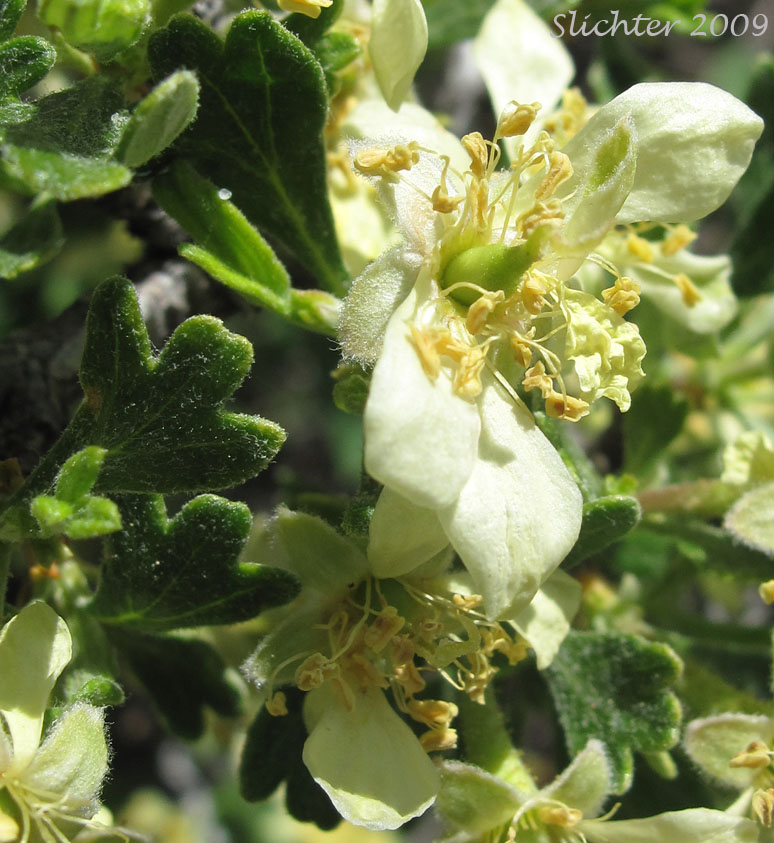 -
- 
Close-ups of antelope bitterbrush as seen along the Old Headquarters Road in the Klickitat State Wildlife Area of south-central Washington........May 24, 2009.
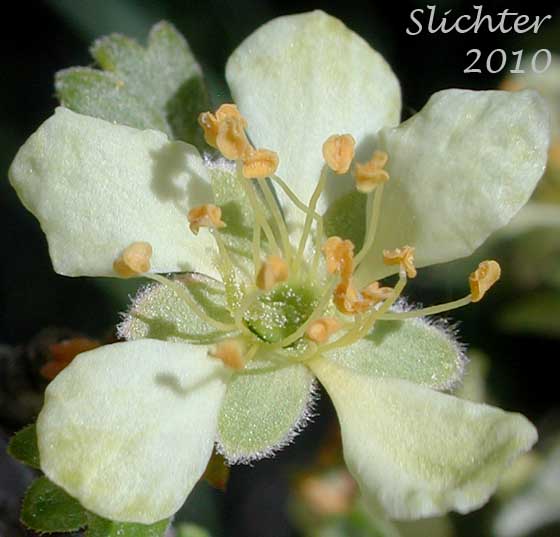 -
-  -
- 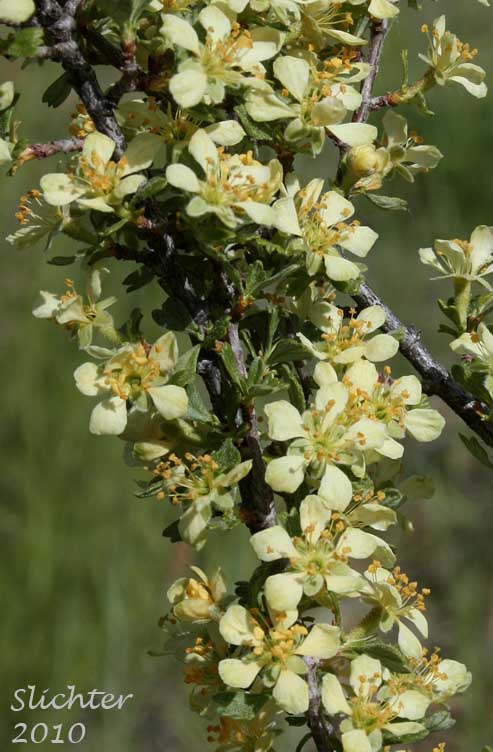

Additional photos of antelope bitterbrush as seen along forest road #16 in Logan Valley, Malheur National Forest........July 1, 2010.
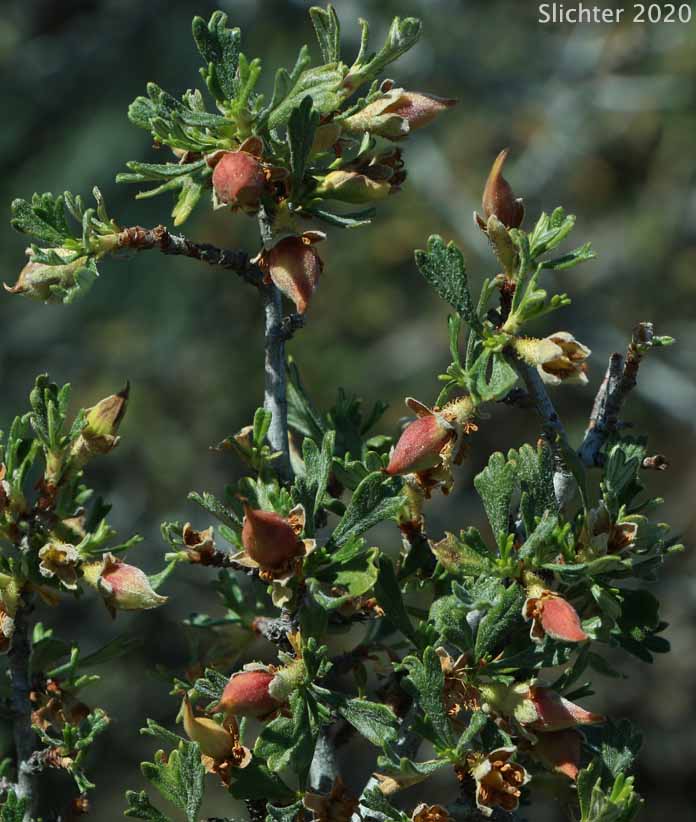 -
- 
The photo at left shows mature fruits of antelope bitterbrush in scablands north of Box Canyon Road, East Simcoe Mountain Unit of the Klickitat Wildlife Area......July 1, 2020. The photo at right shows antelope bitterbrush as seen near a small borrow pit along Road 35 about one-half mile uphill from the southern forest boundary on Table Mountain, Wenatchee National Forest...........June 4, 2013.

Antelope bitterbrush as seen in full bloom at the Silver Creek Marsh Campground, Fremont National Forest.........May 20, 2016.
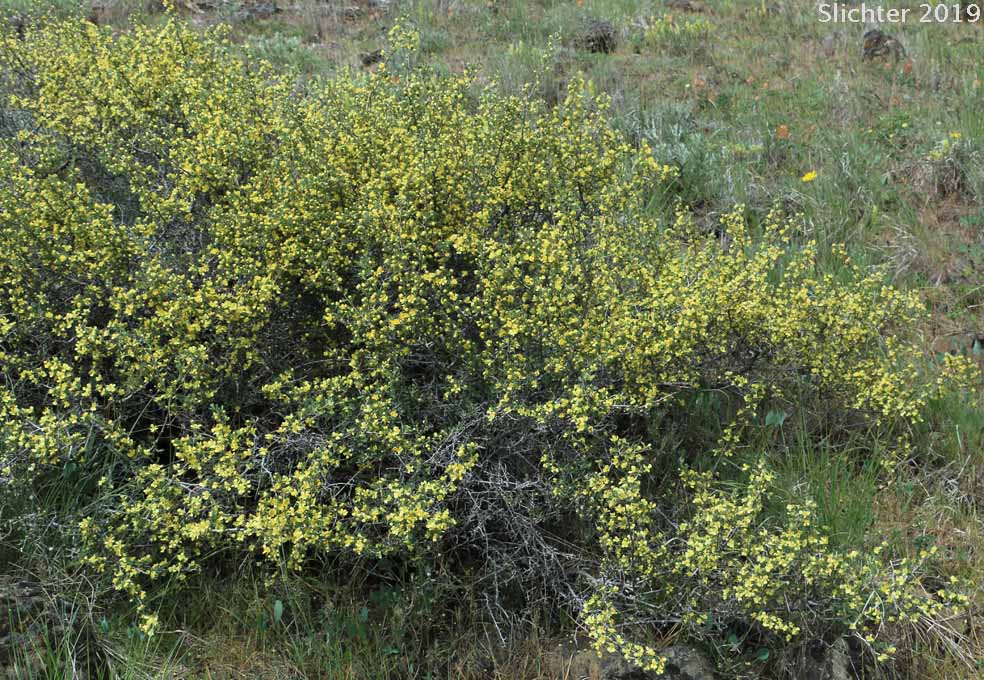 -
- 
Antelope bitterbrush blooming on open scablands on the slopes around Wenas Campground, Yakima County, WA......May 24, 2019.
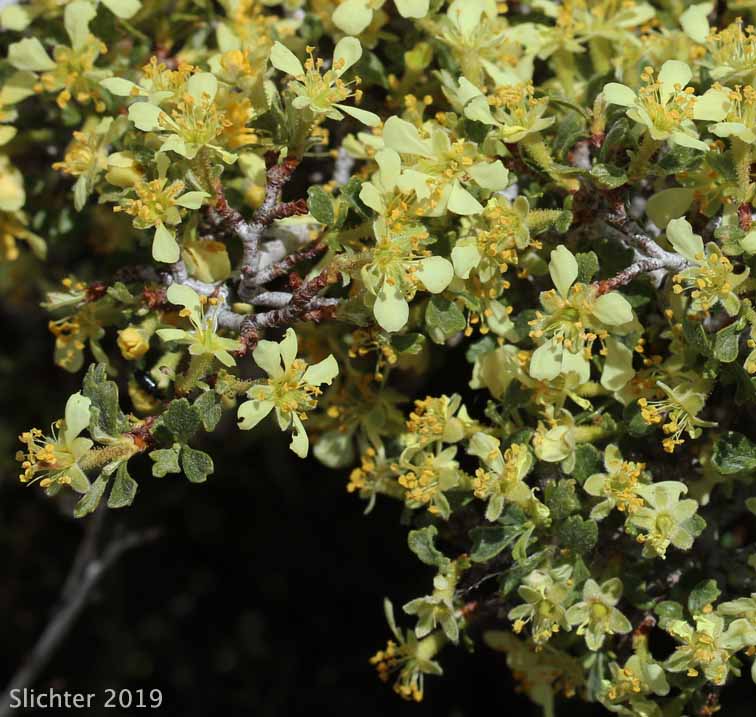 -
- 
Antelope bitterbrush blooming along the Fremont National Recreation Trail #160 at about 7400' on the southeastern shoulder of Crook Peak, Fremont-Winema National Forest.......June 28, 2019.

Antelope bitterbrush in bloom along the Fremont National Recreation Trail on the northwest-facing slopes of Hager Mountain, Fremont-Winema National Forest.......June 18, 2020.
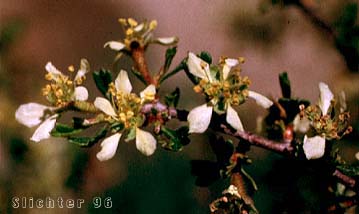
Bitterbrush at Fort Rock State Park, Lake County, OR......May,
1996.
Paul Slichter
 The
photo at right is of a bitterbrush at Fort Rock State Park, Lake County, OR......May,
1996.
The
photo at right is of a bitterbrush at Fort Rock State Park, Lake County, OR......May,
1996.
